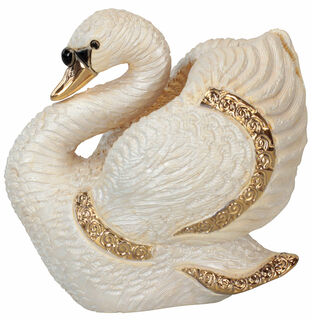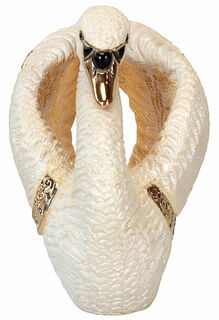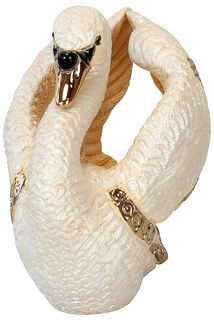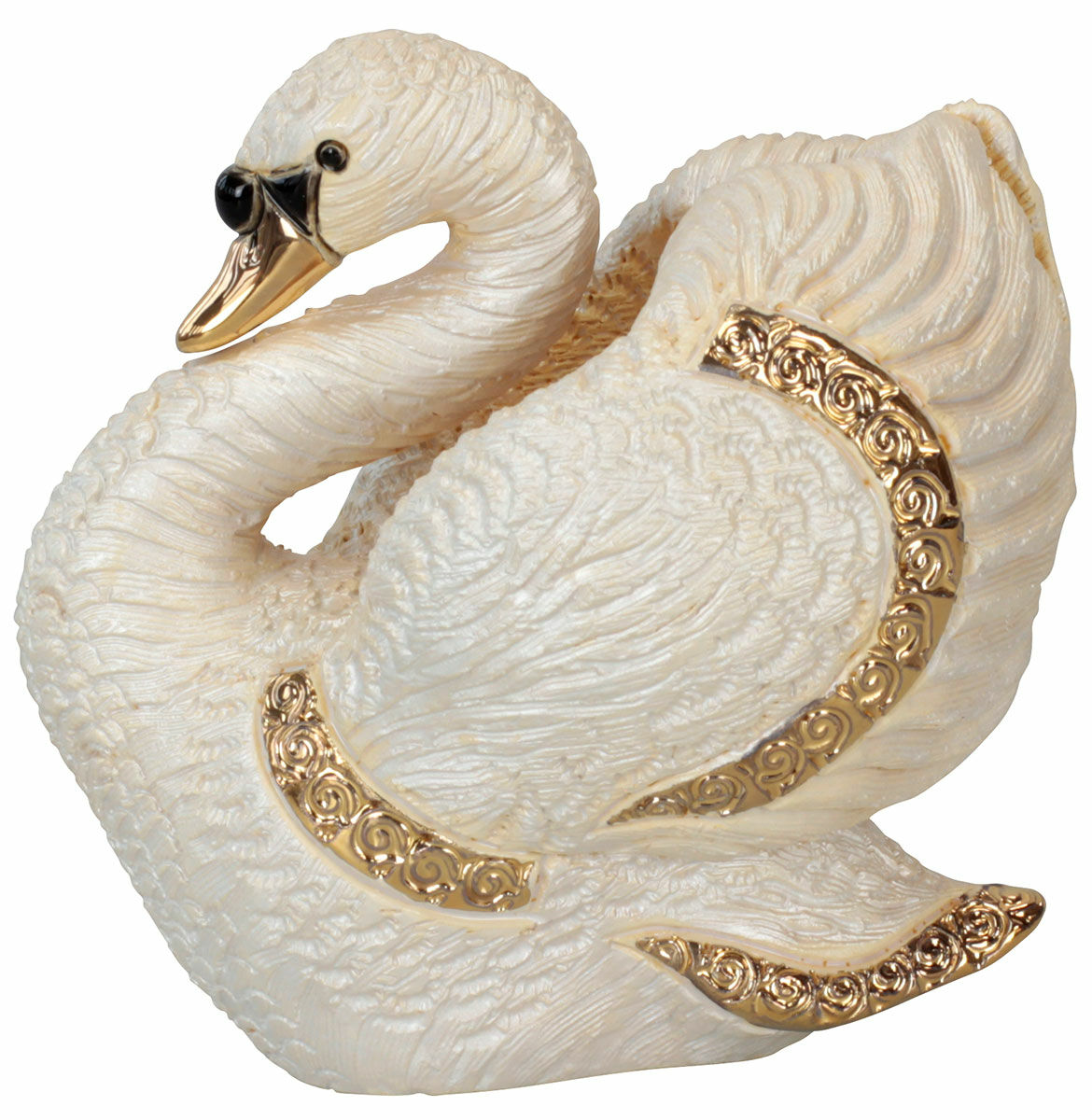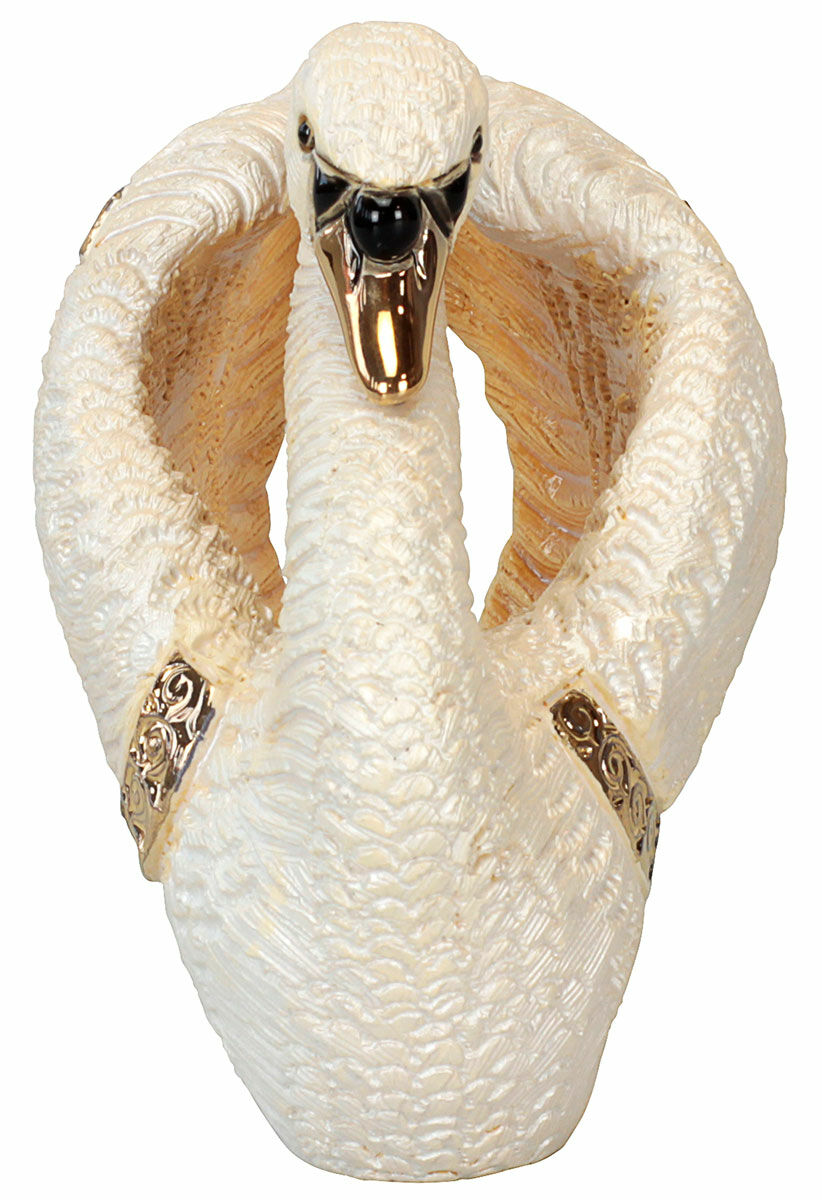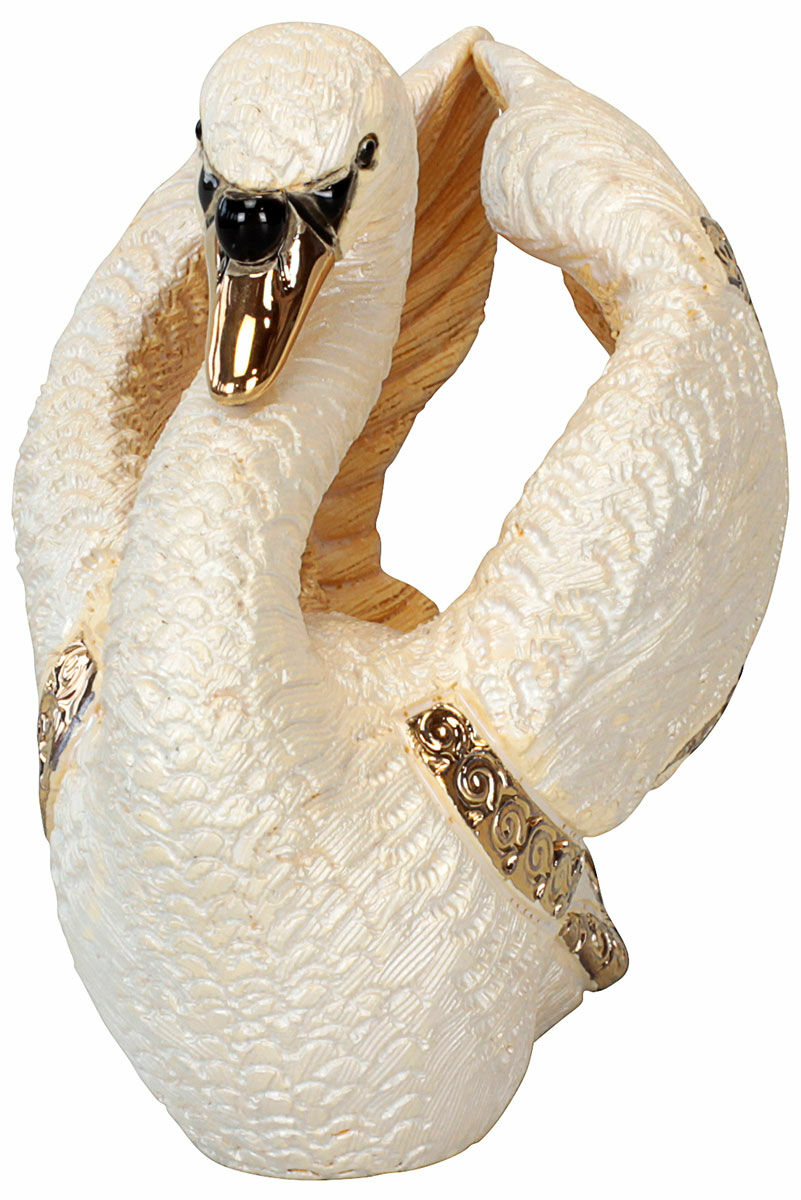Quick info
handmade | ceramic | painted | glazed | gold and platinum elements | size 11 x 7.5 x 11 cm (h/w/d)
Detailed description
Ceramic figure "Swan"
Folk art and elaborate handicrafts from Uruguay. The items are fired several times, decorated with materials such as enamel glaze, gold and platinum in elaborate handwork rich in colour.
The effort that goes into these colourful ceramics is enormous. In a first step, the still soft cast base form is decorated with fine ornamental details. The first firing hardens it, then it is painted - again by hand - and decorative enamel glazes are applied. After further kiln cycles, gilding and platinum elements are finally applied - creating individual testimonies of the close connection between Latin American folk art and handicraft at the highest level.
Like no other animal in the animal world, the swan symbolises intimate love and lifelong loyalty. With its white plumage, it glides gently over reflecting water surfaces and flirts with its wings folded backwards. Ceramic figurine with an enamel glaze and 18-carat gold-plated accents. Size 11 x 7.5 x 11 cm (h/w/d).
Ceramic product made of kaolin, quartz and feldspar.
Porcelain is formed by turning or pressing and figurative objects are cast. Complex objects have to be cast in separated steps and sections and then "assembled". After the moulding, the pieces are dried and "annealed" at about 900 °C. Next, the glaze will be applied and fired at temperatures between 1,240 °C and 1,445 °C. In renowned manufactures, the porcelain is painted by hand whereby each colour has to be fired individually and in compliance with narrow temperature tolerances.
Porcelain was invented in China and became widespread in Europe from the 16th century onwards. The first European porcelain factory was founded in Meissen, Germany in 1710.
Other famous European porcelain factories include Fürstenberg, Höchst, Schwarzburger Werkstätten, Lladró, Nymphenburg, KPM, Augarten, Sèvres, Limoges, Royal Copenhagen, Worcester. Individual factories label their products with their personal porcelain stamps so that for the collecter it is easy to identify their origin.
A plastic work of sculptural art made of wood, stone, ivory, bronze or other metals.
While sculptures from wood, ivory or stone are made directly from the block of material, in bronze casting a working model is prepared at first. Usually, it is made of clay or other easily mouldable materials.
The prime time of sculpture after the Greek and Roman antiquity was the Renaissance. Impressionism gave a new impulse to the sculptural arts. Contemporary artists such as Jorg Immendorf, Andora, and Markus Lupertz also enriched sculptures with outstanding works.

